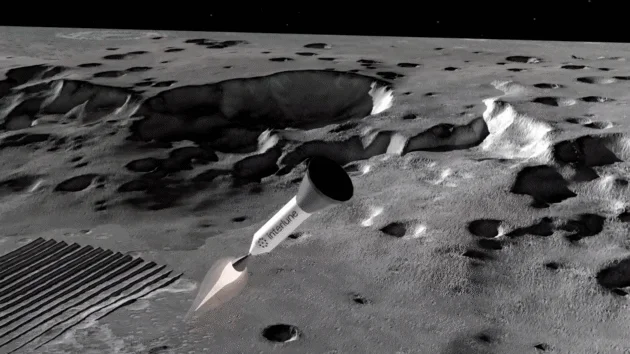
Lunar Rush: Interlune’s Helium-3 Moon Mining Project to Fuel Quantum Computing and Fusion Energy
A new space race is underway, not for land or prestige, but for a valuable resource: Helium-3. Interlune, a US-based startup, is spearheading this lunar venture, aiming to extract this rare isotope from the Moon to power the next generation of quantum computers and potentially revolutionize fusion energy. The company's ambitious plans are quickly moving from science fiction to reality, with functional prototypes being tested and major deals already secured.
Why Helium-3? This isotope is scarce on Earth but relatively abundant on the Moon, deposited over billions of years by solar wind. It's crucial for cooling quantum computers to ultra-low temperatures, a process essential for their operation. Furthermore, it holds immense potential as a clean fuel source in advanced nuclear fusion reactors, producing no radioactive waste.

Interlune's approach is multifaceted, involving a series of missions and cutting-edge technology. Their Lunar Harvester, a prototype excavator developed in collaboration with Vermeer Corp., is designed to process up to 100 metric tons of lunar regolith (moon dirt) per hour, extracting Helium-3 through a sophisticated chemical separation system. Gary Lai, Interlune co-founder and chief technology officer, former chief architect for Blue Origin's New Shepard, emphasizes the unprecedented high-rate excavation required for this endeavor.

The company operates on a three-stage plan. Crescent Moon, launching later this year, will employ hyperspectral imaging to scout Helium-3-rich regions on the lunar south pole. Prospect Moon involves landing a prototype on-site to confirm these deposits and test extraction technologies. Finally, Harvest Moon aims to establish full-scale operations by 2029, returning the extracted gas to Earth.
Speaking of partnerships, Interlune has already secured significant deals, including agreements with the U.S. Department of Energy and Maybell Quantum. According to Maybell Quantum CEO, every quantum system they deploy requires Helium-3 for reliable cooling. The Department of Energy agreement also marks the first purchase of a non-terrestrial natural resource under the DOE Isotope Program.

The potential economic impact is substantial, with Helium-3 potentially fetching $20 million per kilogram. This value drives Interlune's commitment to a purely extraction-focused approach, shipping only the refined Helium-3 back to Earth to minimize launch costs. Rob Meyerson, Interlune co-founder and CEO, and former Blue Origin president, highlights Vermeer's legacy of innovation as a key factor in their harvesting system development.
Interlune's projects are not without their challenges. Operating equipment on the Moon demands unparalleled reliability and performance. However, with substantial funding, including grants from NASA and the Texas Space Commission, and the backing of major players in both the quantum computing and energy sectors, Interlune appears well-positioned to overcome these hurdles.
Will Interlune unlock a new era of energy and computing by tapping into the Moon's resources? What are your thoughts on lunar mining and its ethical considerations? Share your perspectives in the comments below!